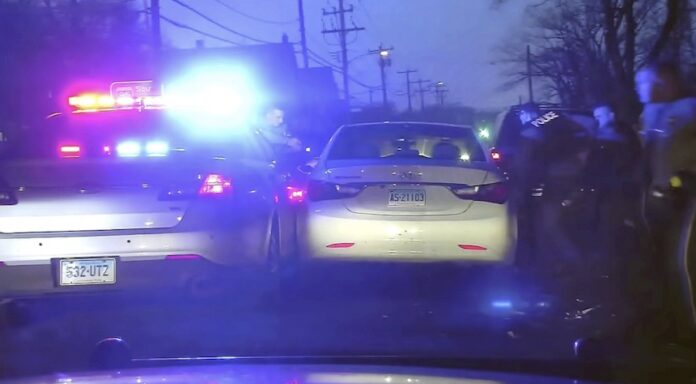Connecticut’s police force has been shaken by a possible scandal surrounding the way its officers report traffic stops. A state trooper’s pattern of manipulating records in order to appear more productive was revealed by an audit.
Reports reveal that 100 police officers fabricated traffic reports in order to increase their numbers. This revelation has raised concerns about the officers’ credibility and led to some questioning their ability to handle serious criminal cases.
Recent audits described “a pattern” of record manipulation and stated that there was a “high probability” that 25,966 recorded stops between 2014 and 2020 were false, and that up to 58,553 could have been inaccurate.

Ken Barone asked, “What was really the motivation?” Ken Barone is a coauthor of the audit. He said that “the motivation was most likely to appear productive.”
Connecticut state police officers’ alleged years-long deceitful scheme has shocked and embarrassed the law enforcement community in the state, as well as its political leaders at a moment when there is a national conversation about police accountability.
Officials from the state said that the U.S. Department of Justice has launched an investigation. Nevertheless, Gov. Ned Lamont (Democrat) has launched a separate investigation.

The state’s trust in the Connecticut State Police is shaken, said Steve Stafstrom. He is a Democrat who also serves as co-chairman for the judiciary committee of the state legislature.
The racial data collected by the state on traffic stops may also have been irrevocably tainted by the ticket reports that were under review. The reason is that the drivers who were purportedly pulled over were disproportionately White, according to Mr. Barone. He is the manager for the Connecticut Racial Profiling Prohibition Project which aims to identify and correct racial disparities and ethnicities in traffic enforcement.
Auditors blamed disparities on lack of oversight and accountability which could undermine the public’s trust in law enforcement agencies. The skewed reports by police officers may also distort perceptions of racial differences in traffic enforcement. This makes it difficult to combat any discrimination that might exist.

The report could have other implications for the criminal justice system of the state. The defense attorney for a murder suspect has asked to be notified if any officers involved in the audit are also involved in the case of his client. He suggested that other defense attorneys may do the same. This is a legitimate question: If officers cannot be trusted to accurately report traffic accidents, how can they possibly be trusted in more serious cases?
Nicole Gonzalez Van Cleve is a sociology professor at Brown University. She confirmed this. She said, “If they can’t be trusted for traffic tickets, then how can we trust them in cases such as sexual assault or murder?”
These revelations reveal a disturbing lack of accountability within the police force of the state. How far will they go if so many police officers are willing and able to falsify data in relation to traffic tickets? At least some officers could abuse their authority to violate people’s civil rights. What is there to stop them from abusing their authority if there is no oversight?
To maintain trust in the government, officials will have to carry out a thorough investigation. The state government will have to be transparent about its findings and how it plans to solve the problem. If officers do not fear accountability, they can create an environment that encourages corruption. The citizens will ultimately suffer.




